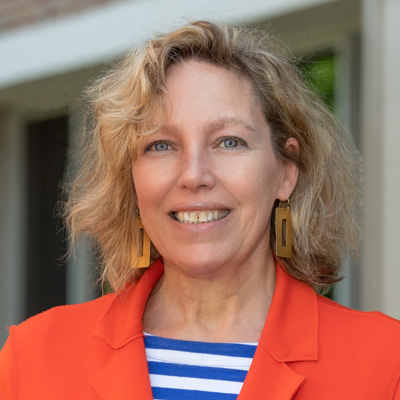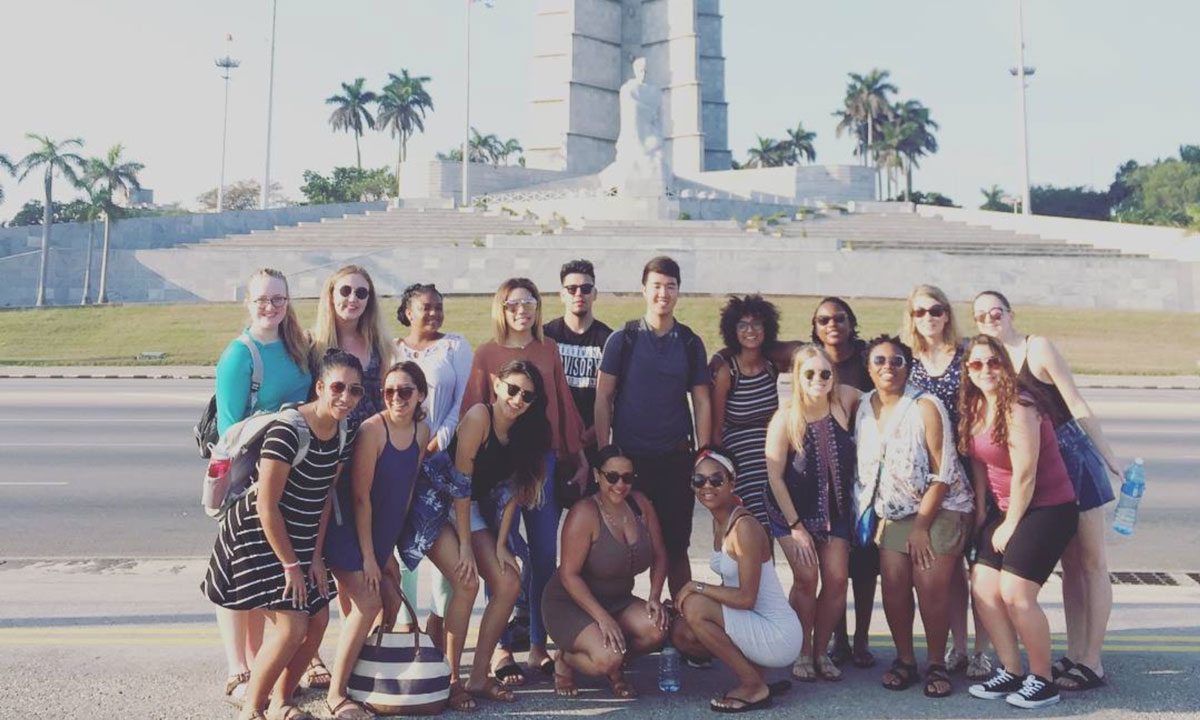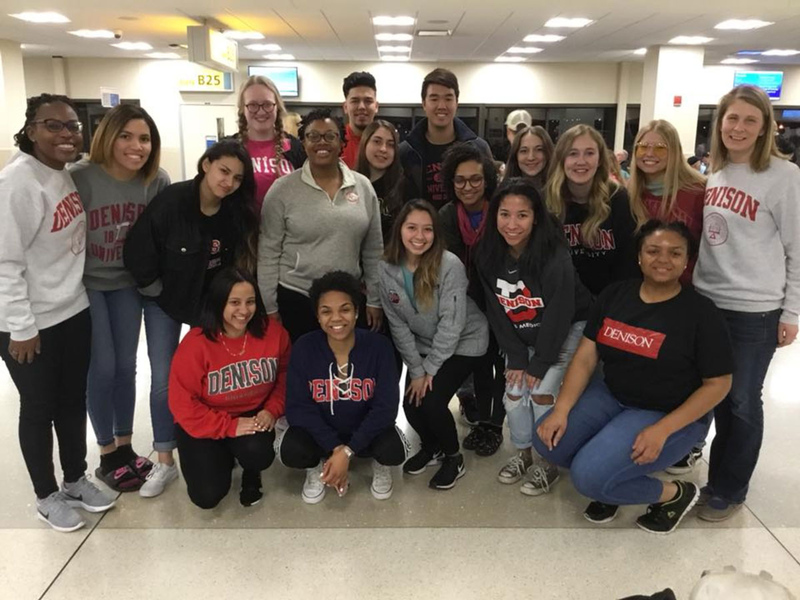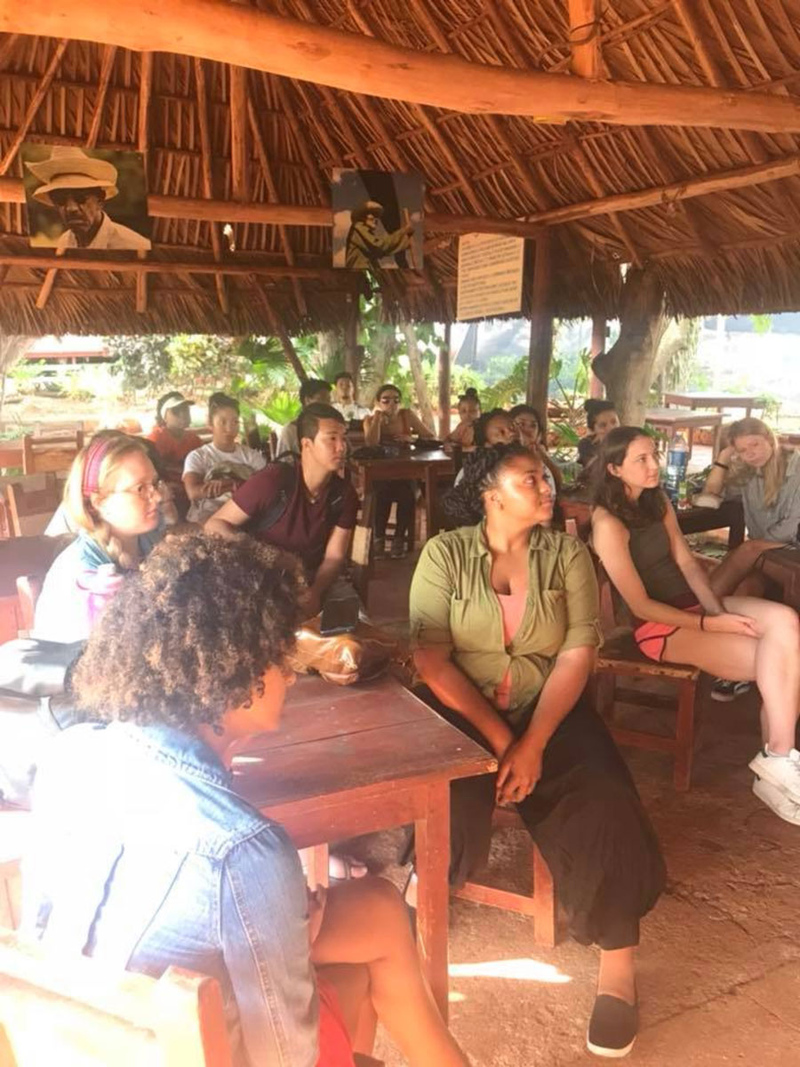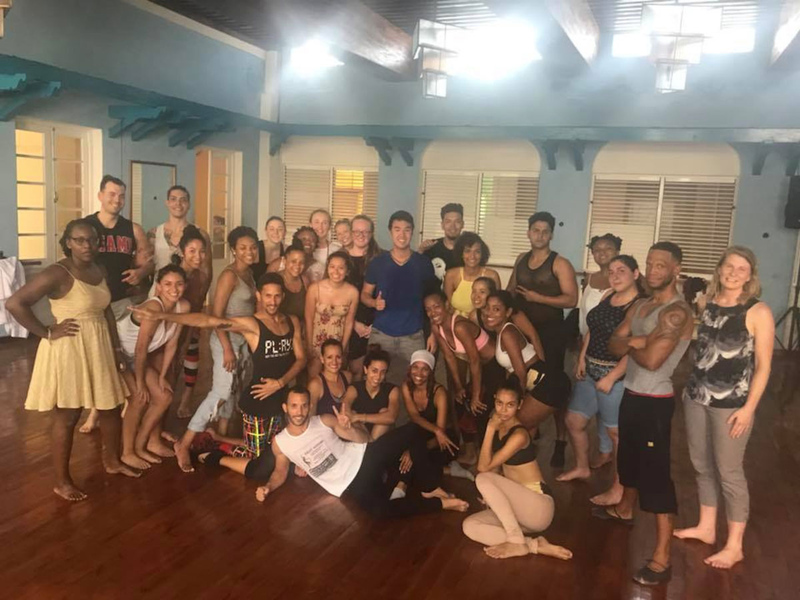Citizen health may be a measure of a nation’s effectiveness, but how do you measure health? And does culture influence health? These are two of the questions that students in a Denison Seminar, Global Health: A Case Study of Cuba and Columbus, attempted to answer.
Questions this big and complex need to be deciphered from many points of view. Taught by Fareeda Griffith, associate professor of anthropology and sociology, and Erin Henshaw, associate professor of psychology, students in the Global Health seminar tackled these questions using data, information and methods that crossed disciplines, including feet-on-the-ground research in nearby Columbus, as well as a week-long research trip to Cuba.
Designed to incorporate a variety of backgrounds and points of view, seminar classes are an ideal laboratory for the liberal arts.
“Diversity of opinions is a welcomed and important component of academic discourse,” says Griffith. “Discussions of inequality are often difficult for individuals. However, one of our goals is to help students understand and write about intricate and complex ideas. Seminar courses give students an opportunity to listen to and respect their peers’ ideas and comments and learn to avoid generalizing behaviors to an entire group.”
Classroom discussions around topics like cultural influences on birth practices, integrated information from many sources — medical data, anthropological research, and psychological processes among them. Students grappled with the complexities of the knowledge and shared their own points of view.
As they focused on Cuba, Rafael Guzman ‘19, a chemistry major, learned surprising facts about how that country’s healthcare system works. “They have healthcare for all, and given that it is a small country that many view as a third-world country, they have amazing doctors and they are able to maintain their populations healthy and cost-free.”
“We think of Cuba as a disenfranchised/ ‘other’ country, but their ingenuity and intelligence to not only understand healthcare at its core, but consider it from the lens of community health was so interesting to witness and experience first hand,” says global commerce major Imani Holmes ‘19. “It’s not about lining the pockets of big pharmaceutical companies, but it’s more so about how physicians can interpret the holistic needs of their community and provide resources and treatments that are specifically tailored to their needs.”
During their trip to Cuba, the group toured hospitals, medical schools, and community health centers. They talked with local healthcare providers and community members. Daily class discussions related their experiences with their coursework.
“We learned so much!! And went to so many places!” says Autumn Goodrum-Davis ‘20, an anthropology/sociology major. “Our classmates and professors dove into learning about Cuban culture and history (dance, music, Afro-Cuban religion and practices, etc.). In alignment with the course mission we also went to various medical facilities serving differing communal purposes and we attended a co-opted organic farm. There was also lots of time to explore the city.”
They also stayed with host families, which was an education in itself.
“I loved being a part of the community/family settings that are so inherent in their social fabric,” says Holmes. “I did not necessarily miss WiFi and really enjoyed being ‘in the moment’ with my Denison peers. Our host families always made sure we had the things that we needed to feel comfortable and the bonding experiences that we had with one another were paramount.”
Students connected directly to information they learned in the classroom. “We heard a presentation at a clinic about the different public health concerns Cuba was battling. We gave contraceptives to teens around a park,” says Guzman.
Holmes adds, “While there, you saw how Cubans make do with what they have… limited technological infrastructure, buildings that weren’t the fanciest — which was okay. They used their resources and infrastructure to guide their population to optimal health.. and could care less whether or not external influences or politics gave a damn. Their deeply rooted pride in their Cuban culture gave their citizens pride.”
In contrast, the class also took a day trip into Columbus where they spoke to health professionals at Columbus Public Health, Riverside Methodist Hospital, and OhioHealth Family Medicine Grant. International Studies major Caroline Cary ’20 recalls talking to public health officials at Columbus Public Health about the opioid epidemic “that has ravaged Ohio and many other parts of the nation.”
When Cary asked about preventative measures, “they informed us that at that point they were not focusing on prevention. I think this speaks to a major difference between the healthcare systems of Cuba and Columbus; Cuba is considerably more oriented toward preventative healthcare and addressing social determinants of health than the United States is,” she says.
Cary drew comparisons between the two health systems. “While the facilities we visited in Columbus were newer and more technologically advanced than those in Cuba, it really struck me how much more equitable the Cuban healthcare system is. People in Cuba don’t go bankrupt trying to pay their medical bills the way many do in the United States.”
“Another major difference I noticed between healthcare in Columbus and Cuba was the systems’ integration within the community; healthcare seemed to be much more accessible in the communities we visited in Havana in comparison to those in Columbus,” she concludes.
“We learned so much!! And went to so many places!” says Autumn Goodrum-Davis ‘20, an anthropology/sociology major. “Our classmates and professors dove into learning about Cuban culture and history (dance, music, Afro-Cuban religion and practices, etc.). In alignment with the course mission we also went to various medical facilities serving differing communal purposes and we attended a co-opted organic farm. There was also lots of time to explore the city.”
They also stayed with host families, which was an education in itself.
“I loved being a part of the community/family settings that are so inherent in their social fabric,” says Holmes. “I did not necessarily miss WiFi and really enjoyed being ‘in the moment’ with my Denison peers. Our host families always made sure we had the things that we needed to feel comfortable and the bonding experiences that we had with one another were paramount.”
Students connected directly to information they learned in the classroom. “We heard a presentation at a clinic about the different public health concerns Cuba was battling. We gave contraceptives to teens around a park,” says Guzman.
Holmes adds, “While there, you saw how Cubans make do with what they have… limited technological infrastructure, buildings that weren’t the fanciest — which was okay. They used their resources and infrastructure to guide their population to optimal health.. and could care less whether or not external influences or politics gave a damn. Their deeply rooted pride in their Cuban culture gave their citizens pride.”
In contrast, the class also took a day trip into Columbus where they spoke to health professionals at Columbus Public Health, Riverside Methodist Hospital, and OhioHealth Family Medicine Grant. International Studies major Caroline Cary ’20 recalls talking to public health officials at Columbus Public Health about the opioid epidemic “that has ravaged Ohio and many other parts of the nation.”
When Cary asked about preventative measures, “they informed us that at that point they were not focusing on prevention. I think this speaks to a major difference between the healthcare systems of Cuba and Columbus; Cuba is considerably more oriented toward preventative healthcare and addressing social determinants of health than the United States is,” she says.
Cary drew comparisons between the two health systems. “While the facilities we visited in Columbus were newer and more technologically advanced than those in Cuba, it really struck me how much more equitable the Cuban healthcare system is. People in Cuba don’t go bankrupt trying to pay their medical bills the way many do in the United States.”
“Another major difference I noticed between healthcare in Columbus and Cuba was the systems’ integration within the community; healthcare seemed to be much more accessible in the communities we visited in Havana in comparison to those in Columbus,” she concludes.
